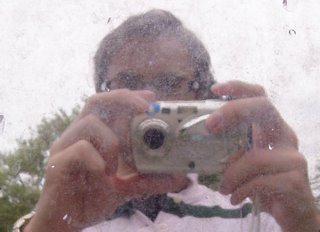La Dolce Vita
One of the great things about community owned, non-profit theatres like the Broadway is opportunity to see classic films on the big screen - granted their screen isn't huge, and we're not talking DTS sound here, but it accurately captures what it would have been like to see these films back when they originally came out. I'd love for them to show some Hitchcock films sometime. However, last night I got to see a Fellini film in a theatre setting.
La Dolce Vita (1960), translated, means "The Sweet Life" apparently. Fellini is considered the greatest Italian director of all time, and even if one doesn't like him, this film was cutting edge for its day, and not something I could see ever being done today.
Marcello (played by Marcello Mastroianni who also starred in Fellini's 8½) is a playboy, celebrity journalist who gets caught up in living "the sweet life" among the movie stars and millionaires of Rome. Night after night; a different party, a different girl. Sooner or later, that kind of life takes its toll. Marcello's fiancé is suicidal. His own values are quickly diminishing into nothing more than "I can't be bored." Over the course of the 3-hour film - yep it's 3-hours, but it's not about battles or "epic" events - I found myself more and more drawn into the film. I felt like I'd been out and about with Marcello so long, that I was forgetting myself. It's a serious film, with some very funny moments and one that I definitely won't forget.
There are a number of elements that I found particularily interesting. One was the opening of a helicoptor carrying a statue of Jesus over Rome. Not only is it an intriguing visual, but also reminded me that in 3 weeks I'll be going to the city. The film got me more excited for that. Another had to do with a pair of children who claimed to have seen the Virgin Mary, and the media circus that gets created around them. The fact that the film takes place in Rome highlighted the way that our current media has turned something religious and sacred - the death of Pope John Paul II for example - and turned it into and "infotainment" event. I think the film is prescient in criticising the narcissistic values of the world media. Marcello's photographer companion is even named "Paparazzo," and even in 1960 we can see how the media and the paparazzi plague the wealthy and the famous.
It's a film that one can enjoy, purely on a very visceral basis. Like Marcello, we can get caught up in the "sweet life." However, this is a film about exsistential crisis, and if one wants to engage it on that higher level, one can. For me, that's part of what makes a film truly great. La Dolce Vita is, I think, a great film.


0 Comments:
Post a Comment
<< Home